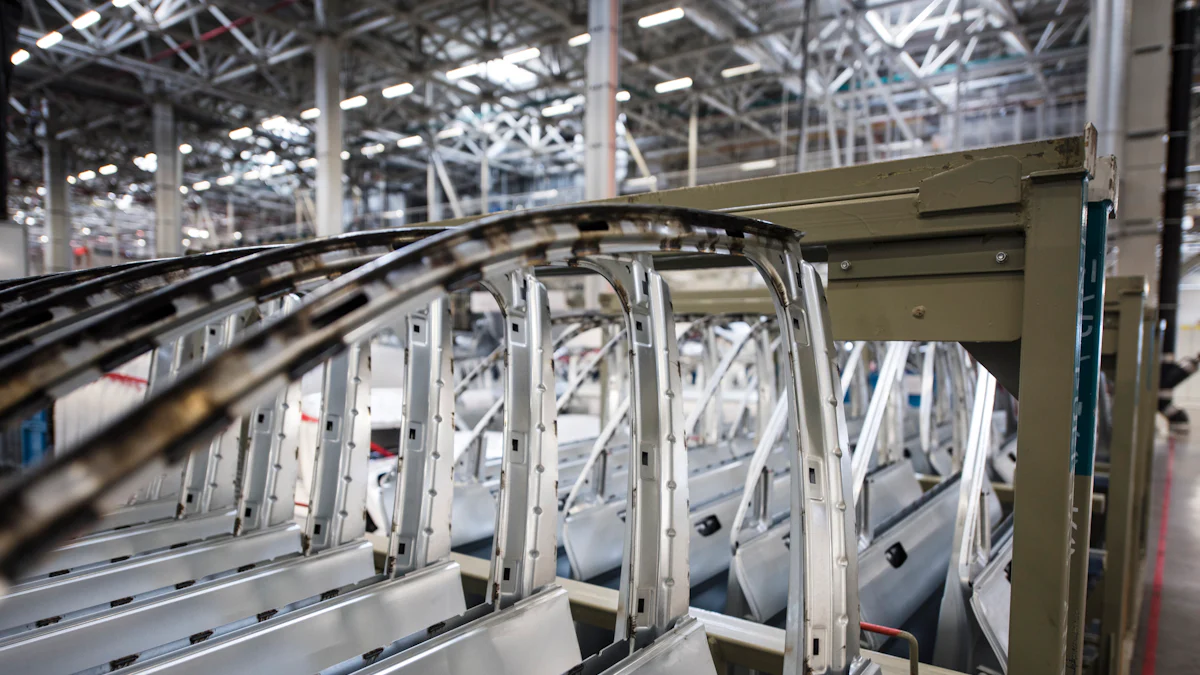
Environmental Impact
When solid aluminum ramps are manufactured, the process begins with the extraction of Bauxite Ore. This extraction method leads to two significant environmental issues. Firstly, it results in deforestation and habitat destruction as large areas of land are cleared to access the ore. Secondly, the energy consumed during this process contributes to greenhouse gas emissions, further exacerbating climate change.
Moving on to the refining process, another set of challenges arises. The refinement of Bauxite Ore into aluminum releases harmful substances into the atmosphere. Air pollution becomes a concern due to these emissions, impacting both human health and the environment. Additionally, toxic byproducts are generated during this stage, posing a threat to ecosystems and biodiversity.
The transportation phase adds another layer to the environmental impact of solid aluminum ramps production. The carbon footprint associated with transporting raw materials and finished products is substantial. Long-distance transportation amplifies this issue, leading to increased fuel consumption and emissions along the supply chain.
Benefits of Recycling
Energy Savings
Recycling solid aluminum ramps offers significant energy savings compared to primary aluminum production. By utilizing recycled materials, companies can reduce their environmental impact and energy consumption. This approach provides a decarbonizing solution, significantly reducing greenhouse gas emissions. Golden Aluminum has been an industry leader in sustainable approaches to aluminum production since the early ’80s, producing beverage can sheets entirely from recycled materials while using sustainable methods. The U.S. Department of Energy investment will fund Golden Aluminum’s Nexcast, a more sustainable and superior method for producing flat-rolled aluminum products.
Resource Conservation
When it comes to resource conservation, recycling plays a crucial role in preserving natural reserves. Compared to traditional production methods, our approach increases the use of recycled materials and consumes less water. This not only helps in conserving resources but also promotes sustainable waste management practices. Golden Aluminum’s commitment to utilizing recycled materials showcases the importance of resource conservation in ramp manufacturing.
Environmental Protection
Recycling solid aluminum ramps is essential for environmental protection. It aids in preventing water pollution by reducing the need for new raw materials and minimizing toxic waste generation. The promotion of recycling programs is vital for safeguarding our environment and ensuring a sustainable future for generations to come.
Need for Sustainable Practices
Use of Recycled Aluminum
Golden Aluminum, a pioneer in sustainable manufacturing, emphasizes the use of recycled aluminum to reduce environmental impact. By opting for recycled materials, companies can significantly lower their carbon footprint and contribute to a greener future. This approach not only benefits the environment but also brings about economic advantages. According to Jeff Frim, President and CEO of Golden Aluminum, “Compared to traditional production methods, our approach provides a decarbonizing solution, significantly reducing greenhouse gas emissions, increasing the use of recycled materials and utilizing a process that consumes less water.”
Lower Environmental Impact
Utilizing recycled aluminum in ramp manufacturing leads to a substantial decrease in environmental harm. The process involves repurposing existing materials rather than extracting new resources, thereby conserving natural reserves. This practice aligns with sustainable principles and helps mitigate the detrimental effects associated with traditional production methods.
Economic Benefits
Apart from its environmental advantages, the use of recycled aluminum offers significant economic benefits. Companies that adopt this approach can reduce costs associated with raw material acquisition and processing. Moreover, by promoting sustainability in their operations, businesses enhance their reputation and appeal to environmentally conscious consumers.
Proper Disposal of Old Ramps
Ensuring the proper disposal of old ramps is essential to prevent environmental contamination and promote recycling initiatives. By implementing effective waste management strategies, companies can minimize the negative impact on ecosystems and public health. As highlighted by David Crane, U.S. Department of Energy Under Secretary for Infrastructure, “Nexcast reduces water usage by 85%.”
Environmental Contamination Prevention
Improper disposal of old ramps can lead to soil and water contamination, posing risks to both flora and fauna. To safeguard the environment, it is crucial to adopt responsible disposal practices that prioritize recycling and waste reduction. By preventing contamination, companies demonstrate their commitment to sustainability and ecological preservation.
Promotion of Recycling Programs
Encouraging the promotion of recycling programs within the industry fosters a culture of environmental stewardship. By actively supporting initiatives that facilitate the collection and processing of old aluminum ramps, companies contribute to circular economy practices. This proactive approach not only minimizes waste but also encourages resource conservation for future generations.
Future Developments
Innovations in ramp manufacturing are paving the way for more sustainable practices within the industry. By embracing technological advancements and eco-friendly processes, manufacturers can reduce their environmental footprint while enhancing operational efficiency. Additionally, policymakers play a vital role in driving sustainable change by implementing regulations that incentivize green initiatives.
Innovations in Manufacturing
The integration of innovative technologies such as advanced recycling systems and energy-efficient production methods holds promise for transforming ramp manufacturing. These developments not only streamline operations but also prioritize sustainability goals by minimizing waste generation and energy consumption.
Policy Recommendations
To accelerate the adoption of sustainable practices in ramp manufacturing, policymakers must enact regulations that support eco-friendly initiatives. By providing incentives for using recycled materials and imposing restrictions on harmful production processes, governments can steer the industry towards a more environmentally conscious future.
Jeff Frim’s innovative approach to aluminum production, as seen in Nexcast, offers a sustainable solution. By reducing greenhouse gas emissions and promoting the use of recycled materials, companies can make a significant environmental impact. David Crane’s testimonial underscores the importance of water conservation, with Nexcast cutting water usage by 85%. Yadira Caraveo highlights how this investment benefits Colorado’s manufacturing families. Scott James emphasizes Nexcast’s alignment with responsible energy practices and resource stewardship. Embracing these advancements is crucial for a greener future.









